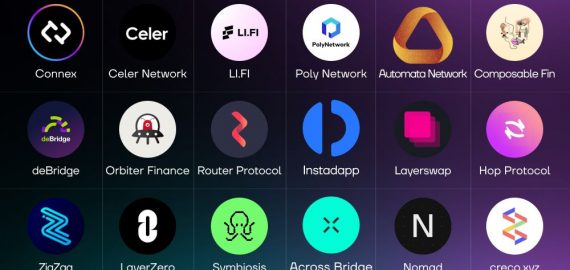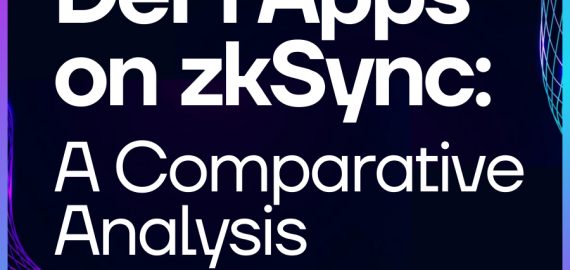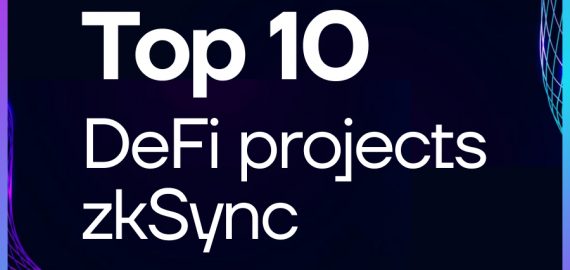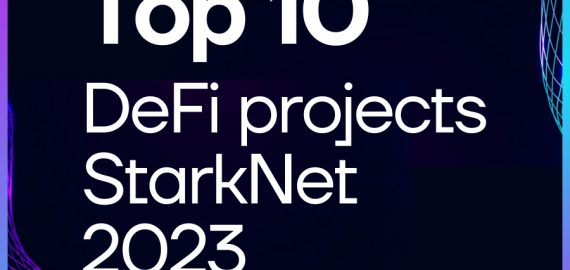A Beginner’s Guide to the zkSync Ecosystem


In Brief
zkSync is a layer-2 scaling solution developed by Matter Labs, aimed at bringing greater scalability and lower fees to Ethereum.
zkSync uses a particular form of zero-knowledge proofs, called zkRollup.
The upgraded version is the first zkRollup to support Ethereum native smart contracts, expanding Ethereum’s scalability potential from thousands to potentially millions of transactions per second.
Ethereum’s phenomenal growth, bolstered by the DeFi boom and rising interest in NFTs, has highlighted the pressing need for scalable solutions that are able to handle increasing transaction loads. As Ethereum’s high transaction fees (or ‘gas prices’) and slower speeds became a significant barrier for many users, various layer-2 solutions emerged to tackle these issues.
Among them, zkSync, an Ethereum scaling and privacy engine, has gained considerable attention for its innovative use of zero-knowledge proofs. This article will provide a beginner’s guide to understanding the zkSync ecosystem.
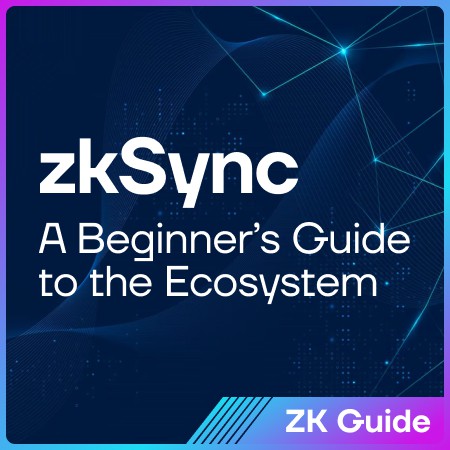
Understanding zkSync
zkSync is a layer-2 scaling solution developed by Matter Labs, aimed at bringing greater scalability and lower fees to Ethereum. The “zk” in zkSync stands for “zero knowledge,” a reference to zero-knowledge proofs, a cryptographic technique where one party (the prover) can prove to another (the verifier) that they possess specific knowledge without revealing that knowledge.
zkSync uses a particular form of zero-knowledge proofs called ZK-rollups. A ZK-rollup bundles many transactions into a single proof, greatly reducing the amount of computational work needed on-chain. This off-chain bundling of transactions allows zkSync to maintain high security while significantly boosting transaction speed and reducing costs.
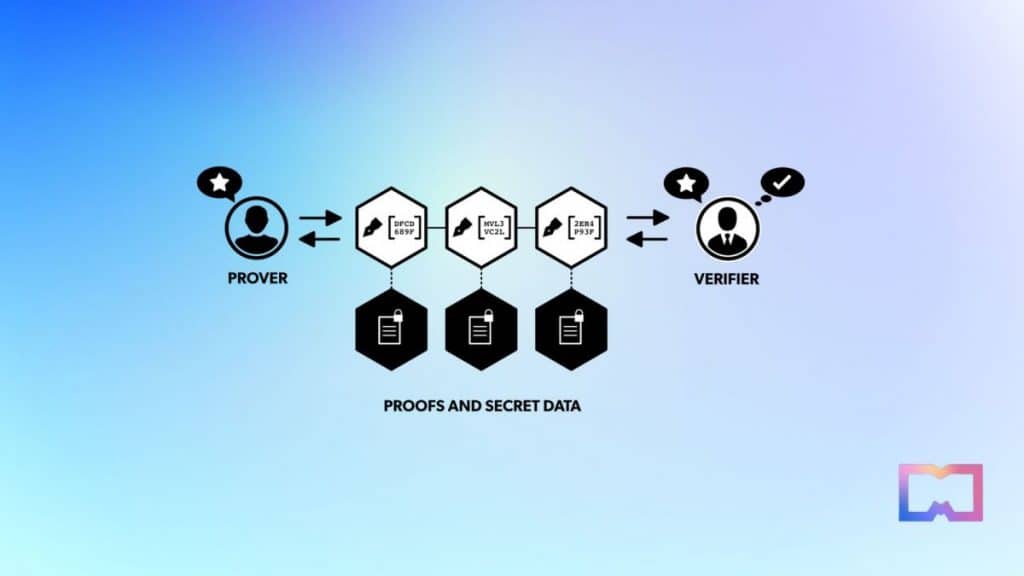
zkSync vs. Other Layer-2 Solutions
Several layer-2 solutions like Polygon (Matic), Optimism, and Arbitrum aim to scale Ethereum. However, each comes with its own trade-offs concerning scalability, security, and decentralization. zkSync distinguishes itself by offering an ideal balance of these key features. It guarantees the security of Ethereum’s base layer while considerably enhancing its scalability and retaining a high degree of decentralization.
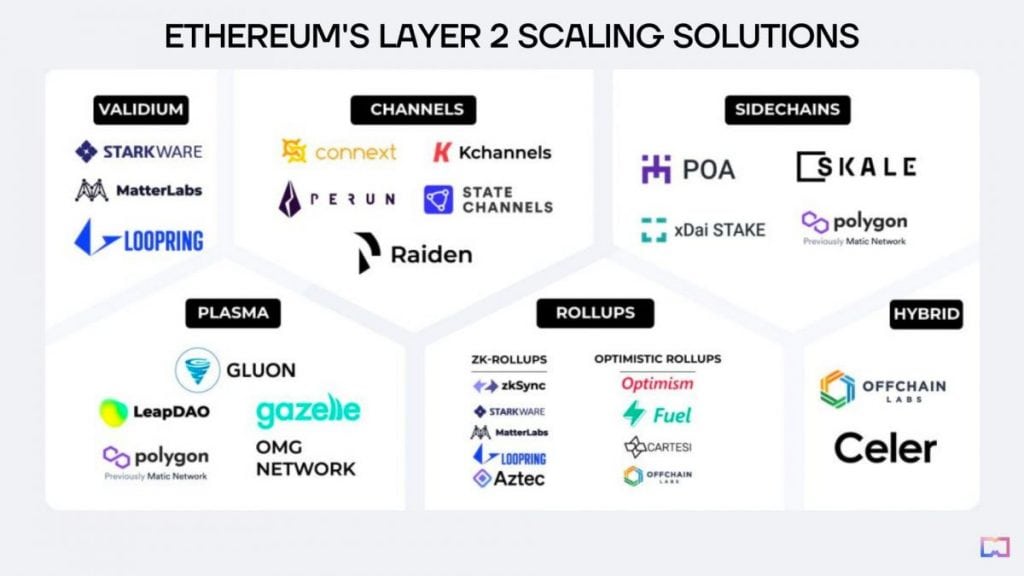
zkSync Ecosystem: The Evolution
Matter Labs introduced zkSync 1.0 in 2020, providing a major breakthrough in layer-2 scaling with up to 2,000 transactions per second. However, the growing demand for more transaction throughput led to the introduction of zkSync 2.0. The upgraded version is the first zkRollup to support Ethereum native smart contracts, expanding Ethereum’s scalability potential from thousands to potentially millions of transactions per second.
The zkSync Token
As of the last update in July 2023, zkSync does not have its native token. However, Matter Labs has indicated future plans to introduce a zkSync token that investors can stake to become validators on the zkSync network.
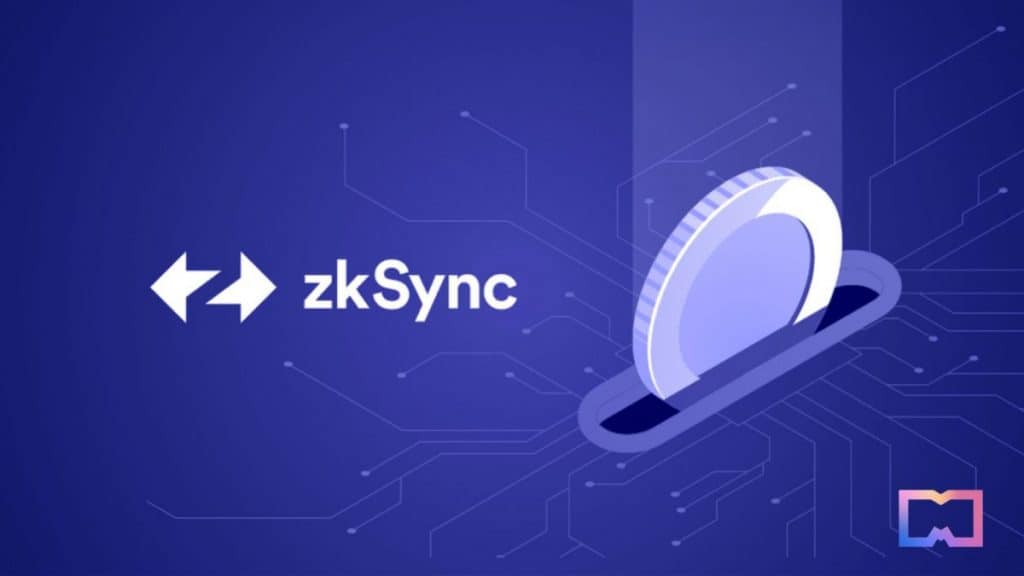
Using zkSync
To start using zkSync, you need to move your tokens from the Ethereum mainnet to the zkSync layer-2 via the zkSync Wallet. You can then execute transactions, which are bundled together and processed off-chain before being published on the Ethereum mainnet. The process significantly reduces transaction costs and speeds up transaction validation times.
Pros and Cons of zkSync
Like all technologies, zkSync has its advantages and disadvantages:
Pros:
- Lower transaction fees.
- Faster transaction processing times.
- Support for all Ethereum tokens.
- Enhanced security provided by the ZK- rollup technology.
Cons:
- zkSync is still relatively new, and mainstream adoption is yet to be realized.
- The surrounding ecosystem, while growing, is not as robust as some other layer-2 solutions.
- As it’s highly technical, understanding and interacting with zkSync may present a steep learning curve for some users.
Conclusion
zkSync represents a compelling solution to Ethereum’s scalability issues. While still in its early stages, the potential of zkSync and ZK-rollups, in general, to transform the landscape of blockchain technology is immense. As the ecosystem around it continues to grow and evolve, the adoption of zkSync is expected to increase, bringing us closer to a more scalable and efficient Ethereum network.
FAQ
zkSync is a layer-2 scaling solution on Ethereum that uses the ZK-rollup technology. It aims to increase transaction speed and decrease transaction costs while maintaining high security and decentralization.
zkSync was developed by Matter Labs, a blockchain technology firm focused on scaling and privacy solutions.
zkSync uses the ZK-rollup technology to bundle multiple transactions and process them off-chain. This approach significantly reduces the amount of computational work needed on-chain, increasing transaction speed and decreasing costs.
zkSync is unique in its use of ZK-rollup technology, which provides an ideal balance of scalability, security, and decentralization. Other layer-2 solutions may compromise one or more of these elements.
You can start using zkSync by moving your tokens from the Ethereum mainnet to the layer-2 zkSync via the zkSync Wallet. Once there, you can execute transactions as normal.
The main advantages of zkSync are lower transaction fees, faster transaction times, the ability to support all Ethereum tokens, and enhanced security thanks to the ZK-rollup technology.
Read more:
- ZK-Proofs: What Are the Benefits of ZK?
- ZK-SNARKs vs ZK-STARKs: How Do ZK-Proofs Differ?
- History of Zero-Knowledge Proofs: From Cryptography to Blockchain
Disclaimer
In line with the Trust Project guidelines, please note that the information provided on this page is not intended to be and should not be interpreted as legal, tax, investment, financial, or any other form of advice. It is important to only invest what you can afford to lose and to seek independent financial advice if you have any doubts. For further information, we suggest referring to the terms and conditions as well as the help and support pages provided by the issuer or advertiser. MetaversePost is committed to accurate, unbiased reporting, but market conditions are subject to change without notice.
About The Author
Nik is an accomplished analyst and writer at Metaverse Post, specializing in delivering cutting-edge insights into the fast-paced world of technology, with a particular emphasis on AI/ML, XR, VR, on-chain analytics, and blockchain development. His articles engage and inform a diverse audience, helping them stay ahead of the technological curve. Possessing a Master's degree in Economics and Management, Nik has a solid grasp of the nuances of the business world and its intersection with emergent technologies.
More articles

Nik is an accomplished analyst and writer at Metaverse Post, specializing in delivering cutting-edge insights into the fast-paced world of technology, with a particular emphasis on AI/ML, XR, VR, on-chain analytics, and blockchain development. His articles engage and inform a diverse audience, helping them stay ahead of the technological curve. Possessing a Master's degree in Economics and Management, Nik has a solid grasp of the nuances of the business world and its intersection with emergent technologies.
















































